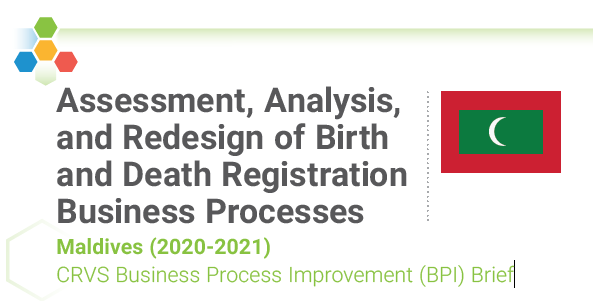Assessment, Analysis, and Redesign of Birth and Death Registration Business Processes
Maldives (2020-2021)
CRVS Business Process Improvement (BPI) Brief

The CRVS community in Asia and the Pacific has reflected on where it stands at the midpoint of the CRVS Decade (2015-2024) during the Second Ministerial Conference. Following this celebration of progress, many of our partners and member countries are leading actions to fill the remaining gaps. To learn more about CRVS in Asia and the Pacific, please subscribe to our newsletter, which offers a monthly panorama of CRVS actions throughout the region Previous editions can be found here. |
Maldives (2020-2021)
CRVS Business Process Improvement (BPI) Brief

|
OpenCRVS hosted a virtual release for v1.2.0 of the platform on 2 February 2023, showcasing the latest features and functionalities that have been developed in response to global demand. Collaborative on Administrative Data |